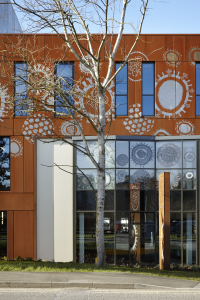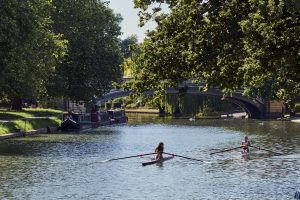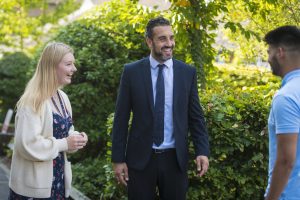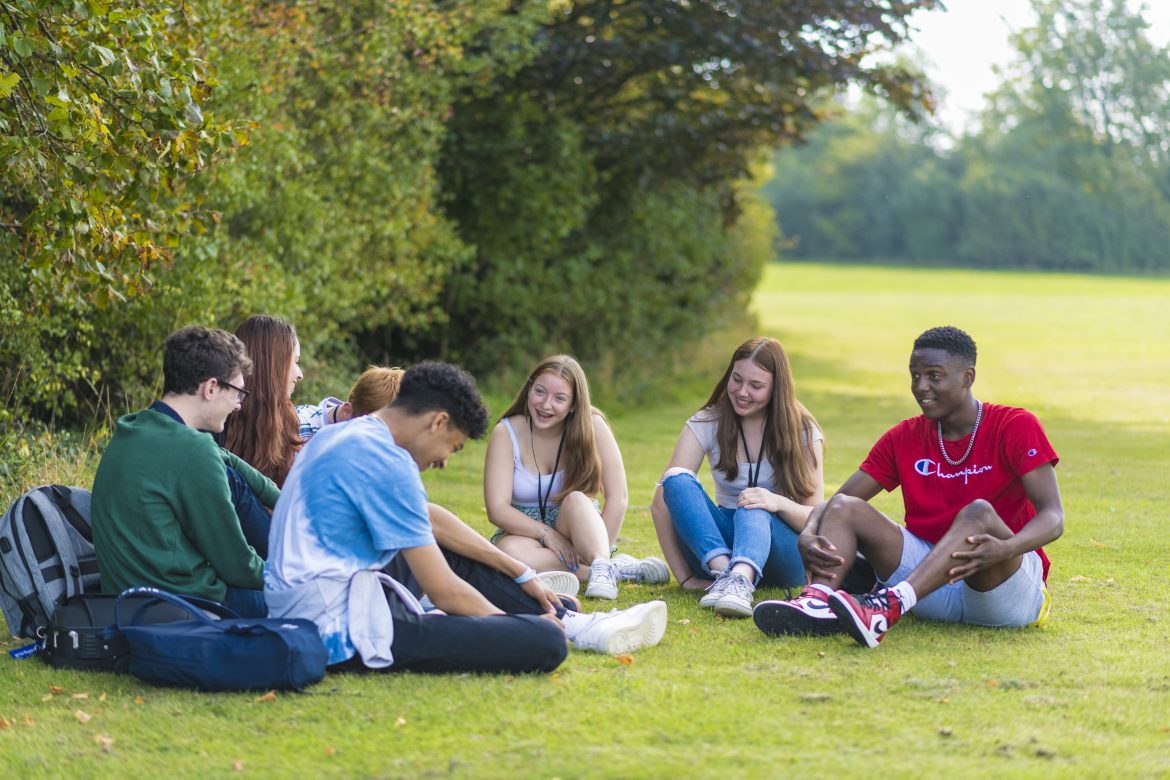There was a time when, aged 16 – sweet or otherwise – you could skip out the school doors without so much as a backward glance and be on your way in the world. No longer. As of 2016, UK legislation requires young people to continue in education, employment or training until the age of 18. Thankfully, our area offers up a rich and inviting range of options for post-16 education, from the large choice of vocational courses at Cambridge Regional College to the prestigious STEM-focused options at Cambridge Academy for Science and Technology (CAST); not forgetting the many top-quality options for those looking to go down the traditional A-Level route.
Decisions, decisions
With so many choices, the daunting first task is deciding what to study and where. Pupils will be encouraged to carefully consider their interests and future ambitions, using this to create a plan with the help teachers and career advisors.
But what about the very many 16-year olds that have nothing close to a firm idea of where they hope to be in five years’ time? “The first thing you can do to help you decide is to look at your timetable,” suggests Ruth Taylor, head of sixth form at St Mary’s School. “What do you love each week? Which lessons are you most engaged with and enjoy? Secondly, consider what you would do if you had an hour in the school day free – what would you do? Science? Food? Music? Talking through your ideas or questions with someone is really useful and often through these conversations an A Level path becomes clear. Fourthly, attend an Open Event or book a personal tour and find out what A Level courses actually involve.”
 Above all, she stresses, keep an eye to the future and remember that sixth form is something to look forward to and be excited about: “This is the first time in your educational journey that you have real power to determine your own direction. If you could choose your direction for the next few years right now, what would you choose? Where would you be, what would you be doing, and what might your life look like in one year if you had absolute choice?”
Above all, she stresses, keep an eye to the future and remember that sixth form is something to look forward to and be excited about: “This is the first time in your educational journey that you have real power to determine your own direction. If you could choose your direction for the next few years right now, what would you choose? Where would you be, what would you be doing, and what might your life look like in one year if you had absolute choice?”
An increasingly popular option is the IB, offered locally at Parkside Sixth, which sees students selecting six subjects from the IBDP groups, plus Theory of knowledge, an extended essay and the Creativity, action and service (CAS) project. “The benefits are that it is a whole qualification – not a narrow three subject qualification. It seeks to educate for the sake of knowledge not just to secure a career,” explains Jon Ellams, Parkside’s director of International Sixth Form. “It is international and recognised around the world unlike other (somewhat outdated) UK qualifications, and it also hits the PISA Global Competency measures in ways that other qualifications just don’t. It is an academic qualification for true enquirers, those who seek knowledge and understanding.”
Then there’s the BTEC, an applied learning qualification which combines practical study with theory content. “Academically, A Levels and BTECs are similar, however, the way they are examined is different. Students who find examinations difficult generally do much better in BTEC as their final grade isn’t dependent on a single set of exams,” comments Danielle Pacey, principle at specialist college CAST, which offers the qualification. “The BTEC also provides a broader education covering a wider area of study that is explicitly linked to the work environment,” she continues. “Studying BTEC prepares students very well for apprenticeships and jobs and they are well regarded by universities due to the high level of practical and independent study skills that they develop. It can increase a student’s university chances as they are more likely to achieve higher grades, which increases the opportunities available to them”.
Beyond the gloss of a prospectus or slick website, an open event can give a genuine feel for a place

Traditionally, an important part of the process would be attending open days, which offer an unrivalled glimpse into the day-to-day workings of a school or college. Beyond the gloss of a prospectus or slick website, an open event can give a genuine feel for a place – and for that reason often weigh heavily in the mind when it comes to decision making. For obvious reasons, open days currently look a little different – and most likely will for a while to come – but true to form, our area’s schools and colleges have proven themselves to be best in class when it comes to adapting and innovating.
The Oakes College (formerly Netherhall Sixth Form Centre), launched an online platform that allows year 11 students to participate in The Oakes experience from the comfort of their own home. With classes, student radio, a virtual tour and live Q&A webinars with students and staff, it’s an all-singing, all-dancing showcase of what the college has to offer prospective students. The college also used its digital prowess to help its new cohort of students with the transition from GCSE to sixth form: “We knew that year 11s would possibly be anxious about the transition, especially academically” explains Oakes’ head, Karim Marsaoui. “The Oakes team worked with our excellent staff to create three platforms of interactive and interesting sample materials for each of our sixth form subjects, to ensure students could get a head start with their level 3 studies. We made these available to all students across Cambridgeshire to help them be ready for the next stage of their academic studies, and our staff were also available to answer questions any students may have and a social media platform was created for students to ask questions about the work, the college experience or watch virtual lessons.”
A holistic approach
Once students are fully ensconced in sixth form life, the focus shifts to how they can make the most of their time there and reap the best results – but what happens in the classroom is only part of the picture, says St Mary’s Ruth Taylor.
“Hard work is always key to sixth form success, but tied in with that is happiness – if you’re happy, you will enjoy sixth form and enjoy more success. Also, sixth form is about opportunities, and to be successful at sixth form you need to take advantage of all the opportunities presented, from clubs and activities to speakers and work experience. It is also about communicating with your teachers and using the academic and pastoral support available.”
Hard work is always key to sixth form success, but tied in with that is happiness

As well as a strong sense of community, sixth form colleges in our area offer a dazzling selection of enrichment opportunities. At Parkside Sixth, there’s a debate society, international festival celebrations and a full complement of sports clubs, while Oakes College offers a diverse enrichment programme that has seen students working behind the scenes at TV network NBC, learning Makaton, travelling to the Houses of Parliament, exploring Nepal and much more besides. It’s all part of the college’s commitment to providing students with skills and experiences that enrich the whole person, not just their UCAS application.
“As a smaller college, we feel lucky to create opportunities for our students to develop into strong, resilient, creative and hard-working individuals whilst taking part in a fun and engaging academic atmosphere”, says head teacher Karim Marsaoui.
At CAST, which is located within Cambridge’s Biomedical Campus, students take part in Challenge Programmes, which allow them to work in state-of-the-art laboratories and facilities alongside industry experts. As well as getting them used to working in a professional environment, the exposure of students to professionals from across the STEM sector means they’re well informed about the opportunities available to them. It also means that students leave with the skills that they need to progress in a career in science or technology, be that specific laboratory or programming skills, or more transferable skills like time management and teamwork.
Life after sixth form
Preparing for life after sixth form can be stressful at the best of times – and that’s before you factor in anxiety about the economic and employment shockwaves of a global pandemic. Now more than ever, students need support, guidance and excellent employability skills as they take their next steps in the world. At Parkside, this is provided with a strong tutor programme and knowledgeable UCAS advisors, provided by an ‘international, diverse and highly qualified’ team of staff, many of whom came to teaching from other sectors. The college also partners with Form the Future – a local organisation that connects young people with career possibilities, as well as other advice and experience organisations that enable students to engage with a range of sectors, industries and individuals.
Students need support, guidance and excellent employability skills as they take their next steps in the world

Over at St Mary’s, support for the next steps comes in the form of bespoke careers advice, work experience programmes and enrichment and leadership opportunities – as well as practical extra-curricular activities including cookery courses. Additionally, students can supplement their studies with the Extended Project Qualification (EPQ), which gives a taster of university-style work on a topic of their choice, while ‘learning lunches’ with experts from a range of professions provide students there with insights into a range of careers.
Whichever path students ultimately decide to follow after their GCSEs, one thing is certain: our area’s world-leading sixth form colleges will be there, ready, willing – and with every imaginable enrichment activity and support mechanism at their disposal – to help them achieve their goals.

